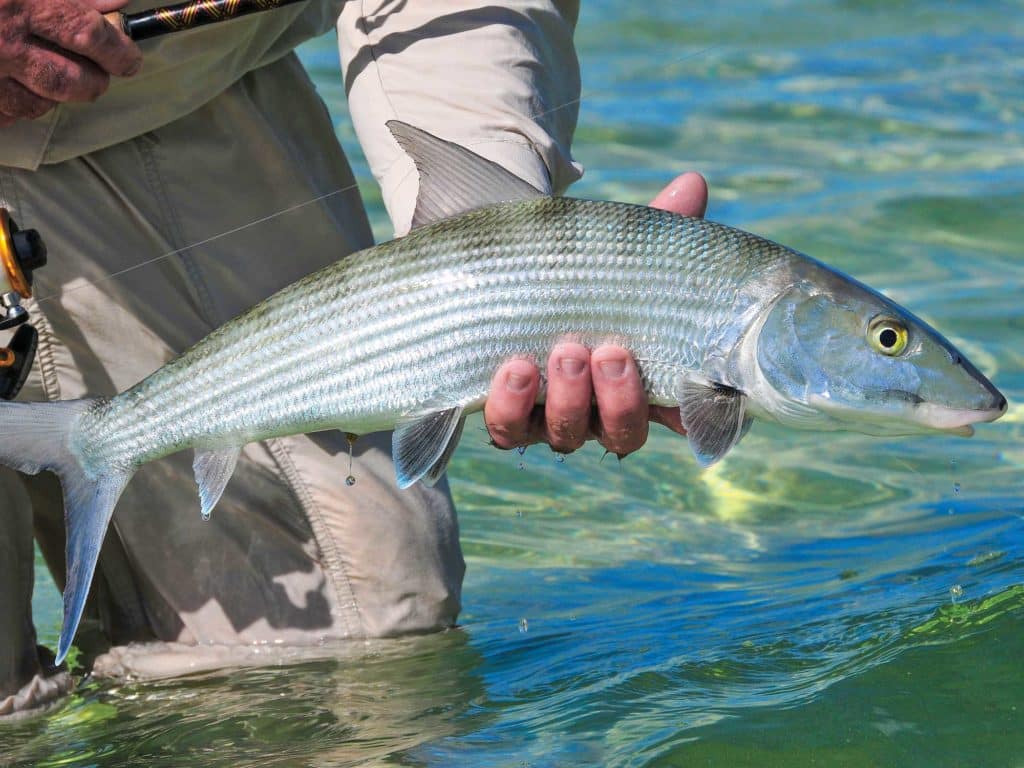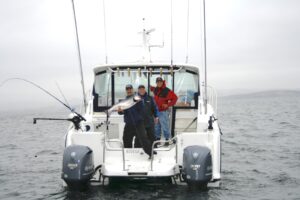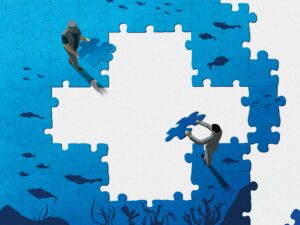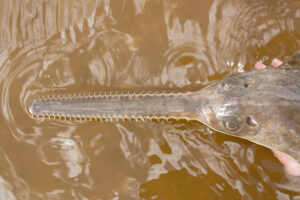
Summary:
- Researchers sampled 93 bonefish in South Florida since 2018.
- An average of seven prescription drugs were found per bonefish.
- A total of 17 pharmaceutical drugs were found in a single fish.
- Researchers also found pharmaceuticals in bonefish prey, including crabs, shrimp and finfish.
Recently announced results of a three-year study revealed traces of numerous pharmaceuticals in the blood and tissue of bonefish captured in popular South Florida waters.
The study was conducted in Miami-Dade County’s Biscayne Bay as well as the Florida Keys by Florida International University scientists working in collaboration with Sweden’s Umeå University and University of Agricultural Sciences, whose labs made possible the specialized testing required.
The research was funded by Bonefish & Tarpon Trust, a conservation group focused on the protection and proliferation of bonefish, tarpon and permit, their habitats, and the larger fisheries they comprise across the southeastern US, Gulf of Mexico and Caribbean through science-based conservation, education and advocacy.
Florida’s Bonefish Are getting Drug Tested
Researchers have sampled 93 bonefish in South Florida since the project got underway in 2018, finding an average of seven prescription drugs per specimen, and up to 17 pharmaceuticals in a single fish.
Blood-pressure medications, antidepressants, prostate treatment medications, antibiotics and pain relievers were among the long list of over-the-counter drugs encountered. Researchers also found an average of 11 pharmaceuticals in forage species that bonefish commonly feed on, including crabs, shrimp and small finfish, which suggests that many of Florida’s other valuable fisheries could also be exposed.
The project’s lead researcher, Dr. Jennifer Rehage of the FIU Coastal Fisheries Research Lab, presented the study’s findings in Tallahassee, Florida, during a BTT panel event.
“These findings are truly alarming,” she said. “Pharmaceuticals are an invisible hazard, unlike algal blooms or turbid waters. Yet these results tell us that they are a formidable threat to our fisheries, and highlight the pressing need to address our long-standing wastewater infrastructure issues.”
“Coastal fisheries face increasing threats associated with human-based contaminants,” says Jim McDuffie, BTT president and CEO. “Pharmaceuticals are an often-overlooked dimension of water quality, and their presence in South Florida bonefish is cause for concern. These contaminants pose a significant threat to the flats fishery, an important part of Florida’s recreational saltwater fishing, which has an annual economic impact of $9.2 billion and directly supports 88,500 jobs.”
Pharmaceutical Drugs Are the Main Culprit
Approximately 5 billion prescriptions are filled each year in the US, yet there are no environmental regulations for the proper disposal of pharmaceuticals worldwide. And pharmaceutical contaminants originate most often in human wastewater, and are not sufficiently removed by conventional water treatment. They remain active at low doses, can be released constantly, and exposure could affect all aspects of fish behavior, with negative consequences for both their reproduction and survival. In fact, pharmaceutical contaminants have been shown to affect all aspects of the life of fish, including their feeding, level of activity, sociability and migratory behavior.
“The findings underscore the urgent need to expand and modernize wastewater treatment facilities and sewage infrastructure statewide,” McDuffie says.
Cleaning Florida’s Waterways is a Slow Process
“Water quality is vital to our state’s identity and economy, and the Clean Waterways Act, which addresses wastewater, septic, storm-water management, nutrient reduction, and new standards for biosolid applications, was a great step to make a difference for Florida’s natural resources,” says Florida Rep. Bobby Payne (R-19).
“Legislative support and funding for water-quality improvements set us on the right path. Now we must expedite those efforts, increase long-term investment, and pursue innovative solutions. We must accelerate the conversion from septic tanks to sewer systems and, in places where they’re not available, require the use of advanced septic technology. The health of our citizens and coastal resources depends on it,” McDuffie adds.









